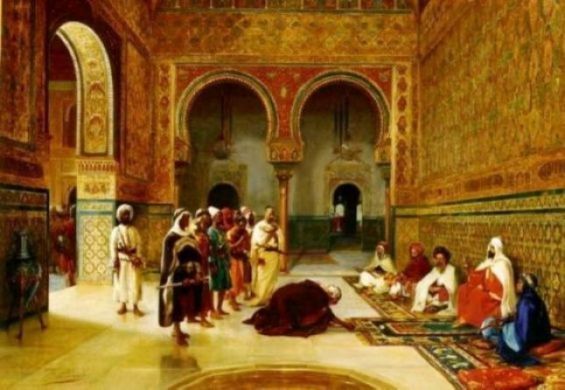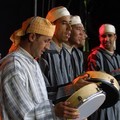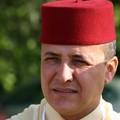When Ahmed al-Mansour, the Saadian Sultan from 1578 until his death in 1603, ascended the throne of Morocco, it was after a great victory—one that saw the Portuguese defeated at the Battle of Wadi al-Makhazin in 1578.
Al-Mansour used this triumph to elevate his stature both domestically and internationally. This also included his deep commitment to intellectual pursuits. Passionate about expanding his knowledge, he diligently sought education in various fields, including Islamic studies, literature, and history. He engaged with prominent scholars, poets, and physicians from within Morocco and abroad, fostering cultural exchanges through correspondence and discussions, as reported by the Moroccan Ministry of Endowments and Islamic Affairs in its monthly Islamic cultural magazine, Da'wat al-Haqq.
In an issue dedicated to «Ahmed Al-Mansur Al-Dhahabi's Celebrations of Festivals and Holidays», the magazine reveals that the Sultan held and participated in scholarly gatherings at his palace, demonstrating his expertise and engaging in intellectual debates. These gatherings included cultural competitions among scholars, poets, and intellectuals, religious lectures, poetry recitations, and musical performances, all held during festivals and special occasions.

Scholars and historians who documented the events, celebrations, and festivities during the reign of the Sultan indicate that religious events, Eid celebrations, and other occasions had special cultural rituals. One such occasion was Eid al-Mawlid, commemorating the birthday of the Prophet Muhammad, which was attended by Moroccan authors, ambassadors, fuqaha (Islamic jurists), and one of the most important officials of the Saadian court Abu-l-Hasan Ali ibn Mohammed al-Tamgruti.
Invited by Sultan al-Mansour to the El Badi Palace to attend the Mawlid Nabawi festivities, al-Tamgruti documented the lavish decorations, candlelit displays, and fragrant incense that marked the religious celebration.
Ramadan lectures to study Sahih al-Bukhari
Ramadan was also one of these religious events to which scholars and ulema were invited. During the holy month, the Sultan organized special nights with special rituals. In his book Kitab al-Istiqsa li-Akhbar duwal al-Maghrib al-Aqsa, 19th-century historian Ahmad ibn Khalid an-Nasiri details how the Saadian Sultan held these nights. These Ramadan nights, or lectures, were marked by reading and studying Sahih al-Bukhari, one of the most respected and authentic collections of hadith of the Prophet, compiled by Islamic scholar al-Bukhari.
According to an-Nasiri, during these Ramadan nights, scholars would complete Sahih al-Bukhari. «The judge (Islamic Qadi) and the notable jurists would recite each day a portion from a copy of al-Bukhari, which they had divided into thirty-five portions», an-Nasiri recounted in his al-Istiqsa.
The thirty-five portions of the hadith collection would cover the entire month of Ramadan, with Eid al-Fitr and the day after being skipped, and the remaining chapters completed on the seventh day after Eid.

Reading Sahih al-Bukhari was not just a recitation session but also an opportunity to study hadith, debate, and discuss religious matters with the attendees. «The tradition was that the judge would undertake the recitation himself, reciting approximately two pages from the beginning of the portion, and discuss matters with those present, offering any research or guidance that appeared to him», reported an-Nasiri.
«They would continue the discussion until the next morning, after which the session would conclude, and the judge would take the remaining portion and complete its recitation at his house. The next day, he would begin another portion, and so on».
These reading sessions and discussions among scholars were attended by the Sultan himself. Ahmed al-Mansour «would be seated near the edge of the circle, having a designated place for his seating», an-Nasiri wrote.
Dorouss Hassania
It is hard not to compare this Saadian tradition to Dorouss Hassania, a similar format initiated by King Hassan II in the 1960s. These royal Ramadan lectures involved a similar structure, attended by King Hassan II and later his successor King Mohammed VI.
Adopting the same spirit as those initiated by Sultan Ahmed al-Mansour, these Dorouss are Ramadan specials promoting Islamic learning and spiritual reflection.

Dorouss include readings and discussions of religious texts such as the Quran and Hadith, as well as other Islamic literature. Like the judge, or qadi, in Saadian dynasty courts, Dorouss feature scholars, imams, and religious leaders leading these discussions, offering interpretations and reflections on Islamic teachings.





 chargement...
chargement...













